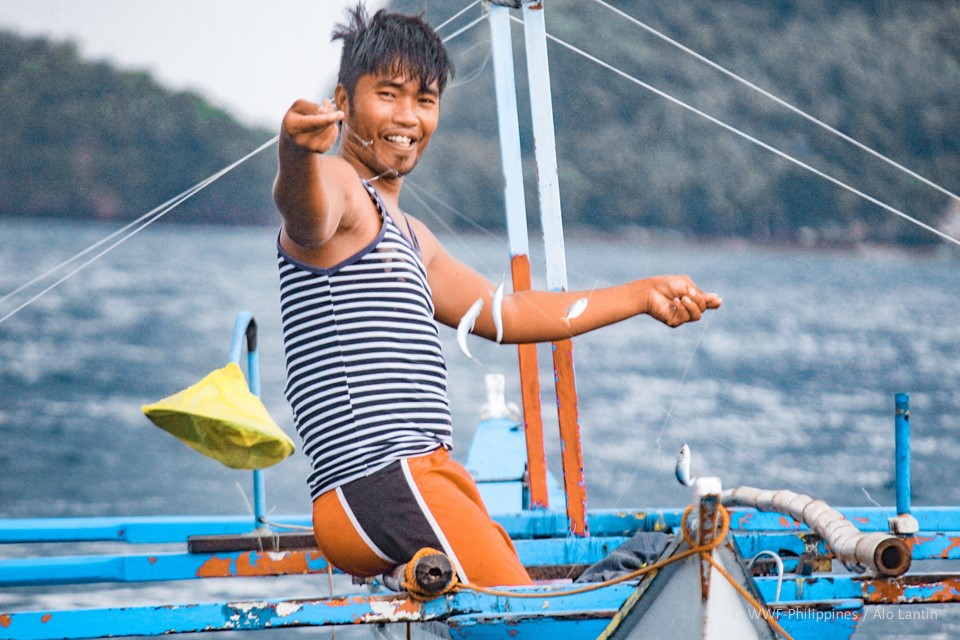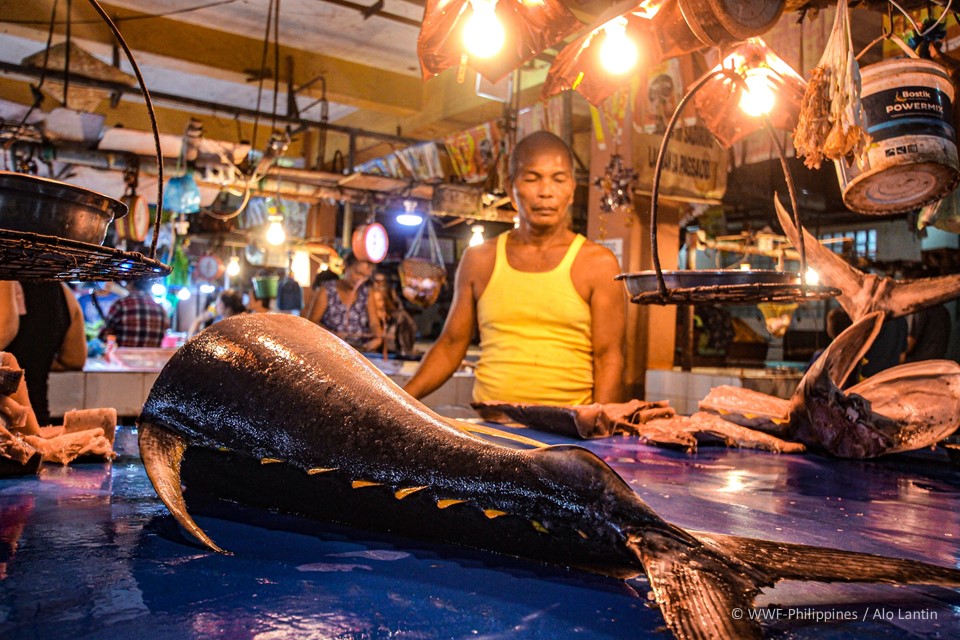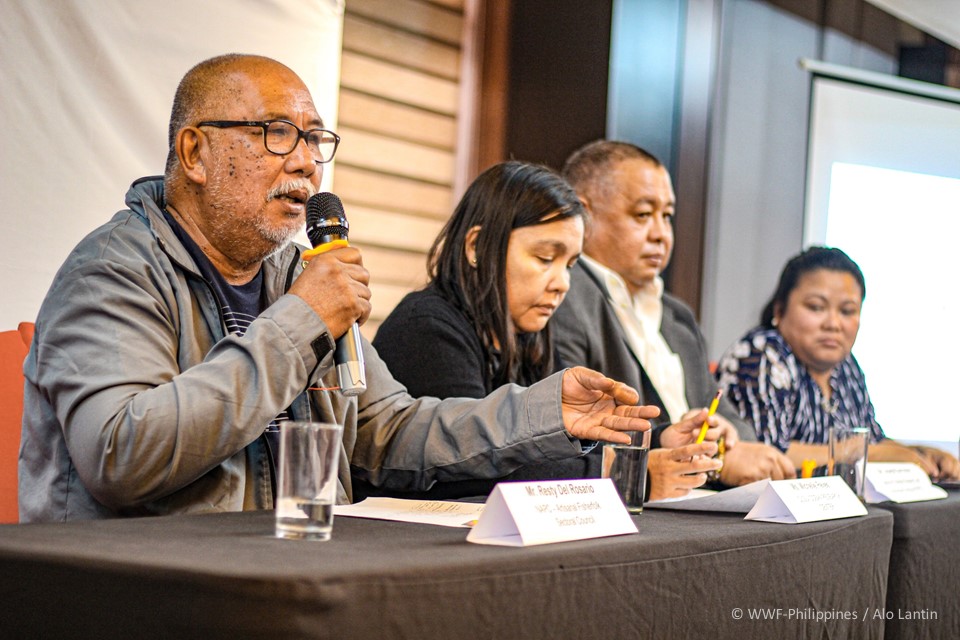Conservation Groups Rally for Sustainable Fisheries and the Establishment of a Department of Fisheries and Aquatic Resources
December 2019

There are about two million registered municipal fishers in the Philippines. According to the Philippine Statistics Authority (PSA) fishers remain the poorest of the poor in all sectors in the country. Photograph © Alo Lantin / WWF-Philippines
Quezon City, Philippines - Conservation groups came together to highlight to the public the importance of sustainable fisheries and to advocate for the establishment of a Department of Fisheries and Aquatic Resources (DFAR).
Known collectively as the Pangingisda Nating Gawing Tama (PaNaGaT) Network, a group of non-government organizations has been advocating for national compliance to Sustainable Development Goal (SDG) 14, Life Below Water, which looks at the “[Conservation and sustainable usage of] the oceans, seas, and marine resources for sustainable development,” according to the United Nations.
To support the establishment of DFAR, the PaNaGaT network stressed the contribution of the countries’ fisheries to the economy and food security, as well as the need for sustainable practices in order to conserve marine resources.

The Philippine fisheries sector contributed Php 265 billion (4.5 million tons) worth of wildfish in 2018. Photograph © Alo Lantin / WWF-Philippines
“There are 102 million people in the Philippines, 27% of whom are below the poverty line. Our fishery sector ranks second highest in terms of poverty incidence… and about 82 million Filipinos eat fish. That’s how important our fishery products are,” says World Wide Fund for Nature (WWF) Philippines Sustainable Tuna Partnerships Manager Joann Binondo. Illegal fishing costs the country nearly 68.5 billion pesos a year, however, and a lack of effective enforcement of fishery laws has left 10 of 13 fishery areas overfished. The DFAR would help with the management of the countries’ fisheries, explains Binondo.
“To leave no one behind, we must promote fishing communities, especially the small-scale fisheries. We have to manage our oceans. Doing so, we aren’t just addressing SDG14 - it’s also SDG1, no poverty, SDG2, zero hunger, and SDG8, decent work and economic growth,” added Binondo.
Binondo also pointed out a need for increased funding, institutional capacity and research and development for the proper management of the countries’ marine resources. According to BFAR, 60 billion pesos were needed to properly manage the countries’ fisheries – but only 5 billion pesos had been allocated.

Fisheries stakeholders call for the establishment of DFAR to ensure food security and conservation of marine resources in the Philippines. Photograph © Alo Lantin / WWF-Philippines
“We don’t want you to look at this as an expense on the part of the government. We want you to look at it as an investment… The cost will return to the country,” says National Alliance of Fisheries Producers Incorporated (NAFPI) President Joseph Borromeo. Under the blue economy and with sufficient institutional support, said Borromeo, the Net Annual Benefit from the Philippines’ marine resources is estimated at around 317 billion pesos. With the DFAR in place, continued Borromeo, local fisheries and aquaculture industries would flourish, with the possibility of employment for many Filipinos.
While not a priority bill of the current administration, adds Borromeo, Duterte had promised during his election campaign that he would establish a Department of Fisheries that is separate from the Department of Agriculture.
“The fish are moving further away. Where before it was an hour’s ride out from shore, now it takes three or four hours. That means we have to spend more on gas. Then we spend as long as five hours waiting for fish. We catch less fish, we spend more time at sea, and we’re spending more and more,” said Subic Bay Integrated Fisheries and Aquatic Resources Marine Council Chairman Restituto Del Rosario. A municipal fisherman himself, Del Rosario explained that those like him are the ones who are most vulnerable to livelihood shocks and poverty relating to the countries’ fisheries.
“Us fishermen are pushing for the establishment of DFAR because we want someone to help look after us. That is our wish - for our lives to be just a little bit easier,” added Del Rosario. With the establishment of DFAR, the Philippines can expect a flourishing of its fishery industry and food security for millions of Filipinos.
The PaNaGaT Network plans to lobby with the Senate next as it continues to push for the establishment of DFAR.
For more information, please contact:
Ms. Joann Binondo
Sustainable Tuna Partnerships Manager
jbinondo@wwf.org.ph
For media arrangements, please contact:
Ms. Pam Luber
Integrated Communications Manager
pluber@wwf.org.ph
